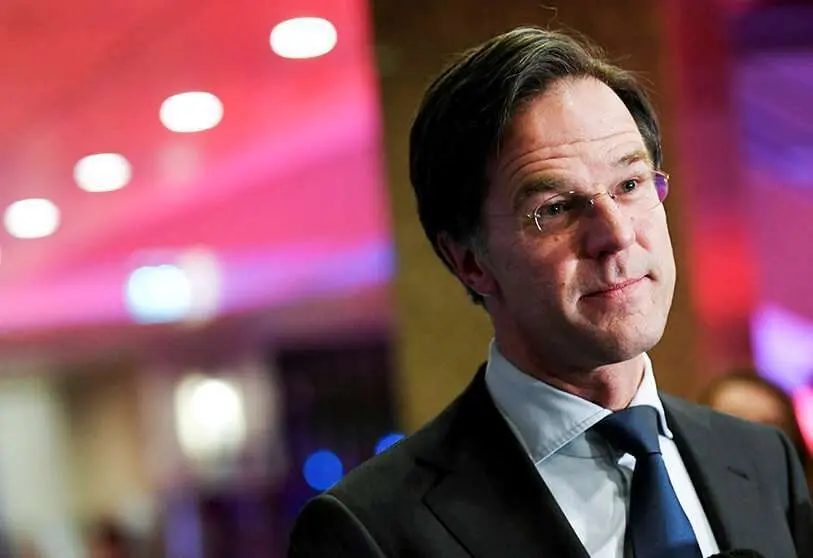Netherlands grants Mark Rutte a fourth term in office

The liberal leader of the Netherlands and also of the so-called frugal European countries, Mark Rutte, has once again won the general elections in the Netherlands, the first national elections to be held in a European Union country during the coronavirus pandemic. The elections were held over three days of voting, culminating in some surprises, according to the first sample of votes counted.
It is not surprising, however, that Rutte's People's Party for Freedom and Democracy (VVD) won, adding a few more seats to the 32 seats it already held in the Dutch parliament. It is surprising, however, that Sigrid Kaag's Progressive Democrats (D66) have increased their vote share by more than 40 per cent, rising from 19 seats to between 27 and 30, but above all, snatching second place from the far-right Party for Freedom (PVV) of Geert Wilders, probably the most anti-Muslim party in Europe, which has also seen a significant drop from its previous 20 seats.
Rutte and Kaag were already allies in the previous government, and this victory augurs that they will once again form a coalition, probably also with the Christian Democratic Appeal (CDA) of Finance Minister Wopke Hoekstra and the Christian Union (CU). The four of them will have more than the 76 seats that make up the majority in a parliament of 150.
Another surprise is the emergence of the Pan-European Party (VOLT), a counterpoint to Rutte's line, which has reinforced with this victory its leadership among those who want more of a single European market but who always drag their feet, when they are not openly opposed to progressive political integration within the European Union. The Dutch leader, withstanding strong internal criticism for having supported the voluminous rescue plan for the European economy, has set himself up as the UK's disciple and successor, once Brexit has been consummated, in terms of conditioning all the EU's expansionary policies, demanding important counterparts for each concession. As a net contributor, its outlook is practically identical to that of the UK: that the Netherlands will progressively reduce its contribution, while taking advantage of its superior status to obtain as many advantages as possible. Thus, for example, Amsterdam has strengthened its role, enhancing its influence as a financial centre and becoming the seat of the European Medicines Agency, whose relevance is multiplying in these times of still uncontrolled pandemics.
Despite a high voter turnout of 81%, these elections have been saved by a strong setback not only for the extreme right but for the left as a whole. Its three most representative parties, the social democrats of the PvdA, the radical socialists of the SP and the ecologists of Groen Links, are together outnumbered by the D66.
The atomisation of the Dutch parliament, with up to 17 political formations represented, should not prevent the possible new coalition government from taking less time to form than the one that emerged from the 2017 elections. Then it took seven months of negotiations, although it was never discussed that Mark Rutte would lead it. The same is true now, even if the new parliamentary arithmetic makes his task easier, at least a priori.
At 54, Mark Rutte will undoubtedly increase his role within the EU. His watchful eye on the less prosperous countries, i.e. the Mediterranean countries, augurs well for fierce battles over the analysis and allocation of recovery funds. His voters have unequivocally given him their backing, and this after he emerged virtually unscathed from last January's riots, which led to the resignation of his entire government over the scandal of the Dutch administration, which had penalised thousands of families, mostly Muslim families of Turkish and Moroccan origin, falsely accused of having fraudulently received social benefits.
With their majority of votes, the Dutch therefore see Rutte as the guarantor of the country's political stability. They are now calling on him to bring the pandemic crisis to a successful conclusion, in the same way that he has already managed to bring the Netherlands through the economic and migration crises - difficult episodes that have accentuated the differences in management between the 27 EU member states.

